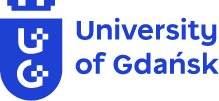About us
The world is rapidly changing with and without COVID-19, with most societies facing a turning point between living and working in a VUCA environment: Volatile, Uncertain, Complex and Ambiguous.
The ability to handle uncertainty productively is crucial for present-day professionals, the organizations they work in, the educators who educate them, and the society that needs change-makers to contribute.
Similarly, an internal need analysis among the project partners, performed with the Ashoka questions’ framework (www.ashoka.org), showed that struggling with uncertainty is still undervalued, although HEIs (Higher Education Institutions) increasingly focus on training students to reflect on themselves as professionals. Without embedding uncertainty in the learning processes, as part of professional and personal development, coping in the VUCA environment can lead to stress, anxiety, and vulnerability, thus hampering a growth mindset students and employability of graduates.
Therefore, this project aims to fill the competence gap of handling uncertainty productively and professionalize educators to enable learners to develop their PUNC (Professional UNcertainty Competence) in their professional performance to find a way through this increasingly uncertain, changeable, and ambiguous world.
In this Strategic Partnership, six partners from different corners of Europe will combine their expertise, exchange knowledge and learn from one another’s cultures in an international structural exchange among educators and researchers on the themes of learning, competence, character skills development, innovative competencies (FINCODA.eu) and pedagogies. Supporting educators to train resilient professionals who can engage their professional uncertainty positively and productively will be reached in four steps.
The project:
- Outlines what the VUCA environment means in an educational context and maps the best practices for designing these learning environments.
- Creates a framework and model providing a validated description of the PUNC competence and related learning outcomes.
- Creates and tests design principles and concrete tools for that.
- Creates a process portfolio to document and authenticate the development of PUNC competence through HEIs studies.
These steps will be implemented using participatory design thinking methodology with a minimum of 200 educators (HEIs, companies) and 240 learners from partner countries.
The project seeks to involve other relevant stakeholders (e.g., educational community, companies, policymakers) in consulting and publicly supporting the PUNC products in the educational field. The project’s theoretical and empirical framework is a four-dimensional education theory (Fadel et al., 2015), presenting an action-oriented, structural framework designed to prepare students to cope with the present-day challenges.
Project outcomes:
- Teacher guidebook.
- PUNC competence framework.
- PUNC toolbox.
- The process portfolio.
The project results benefit the project partners and the other HEIs, educational companies, and policymakers. In the short term, the project increases academic knowledge and shares practice-based experience among educators to handle the uncertainty of professional performance and offers simple, practical, and electronic tools for educators and learners to develop, apply and document their PUNC. In the long term, the project benefits graduates in tolerating uncertainty and keeping their motivation and innovativeness high with better professional and entrepreneurial abilities and skills in coping with rapid change, high-risk choice-making, and high-speed reaction.
